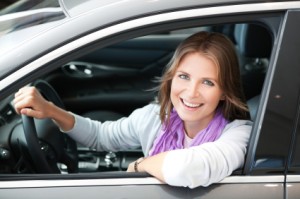The new “64” reg plate censorship
August 21, 2014 September is the time of year when the Driver and Vehicle Licensing Authority (DVLA) issues the new series of car registration plates and is traditionally a high point in the car dealers’ calendar for sales of vehicles to those who want to show off that they are driving the latest motor car.
September is the time of year when the Driver and Vehicle Licensing Authority (DVLA) issues the new series of car registration plates and is traditionally a high point in the car dealers’ calendar for sales of vehicles to those who want to show off that they are driving the latest motor car.
The month also marks an open season for those wanting to indulge their vanity by acquiring a plate that may be read – with a little imagination – as an alternative, well-known word or phrase.
Those in search of their own personalised or cherished number plate this year, however, may have their plans scuppered by the heavy hand of vehicle licensing bureaucracy, which has ruled some combinations of this year’s “64” numbers as potentially offensive or risqué. As a result, nothing short of censorship has crept into the dour workings of the DVLA – some combinations of letters around the new “64” are to be banned.
The problem with “64”
The clue to understanding the problem with the new number emerges from the pages of the Sunday Times, which on the 30th of June 2014 pointed out that it might be read as “A”, “G”, “BA”, “GA”, “GE”, “GH” or several other imaginative interpretations on the shape of the numerals.
Without being too indelicate about it, this opens up all manner of unfortunate possibilities – many of them relying on the interpretation of “64” as “BA” in order to read “64LLS” (“BALLS”), “NO64LLS” (“NO BALLS”), “OH64LLS” (“OH BALLS”) or even “HU64” (“HUGE”).
The casualties are not solely such rather obvious references to body parts, however. Even “VAJAZZLE” – a word practically coined by Essex girls – met with the censor’s red pen when “VA64AZL” was banned as a registration number.
From September onwards, therefore, it might prove much easier to find motor insurance in Essex than your particularly cherished number – although such certain favourites as “MC64RRY” (“MCGARRY”), “EN64GED” (“ENGAGED”) and “RE64TTA” (“REGATTA”) have apparently been spared the censor’s chop.
Personalised number plates
It probably defies any rational understanding as to why cherished number plates remain so popular in the UK. But popular they certainly are. According to a story broadcast by the BBC, the DVLA raised a staggering £67 million from the sale of them during the year 2012 alone.
Many of these buyers may be holding on to the impression that their display of a personalised number makes a statement about their individuality or perhaps they are simply owning them for their potential investment value. Still others, of course, may regard any such obsession as a crazy waste of money.
The BBC managed to compile a list of the top ten most expensive personalised number plates to have been sold to date and established that the number “D 1” – priced at a whopping £352,000 in March 2009 – currently tops the list as the most expensive statement of vanity.
The sale of personalised number plates – directly by the DVLA, through auction sales and online – has netted HM Treasury an estimated £1.8 billion since 1989.